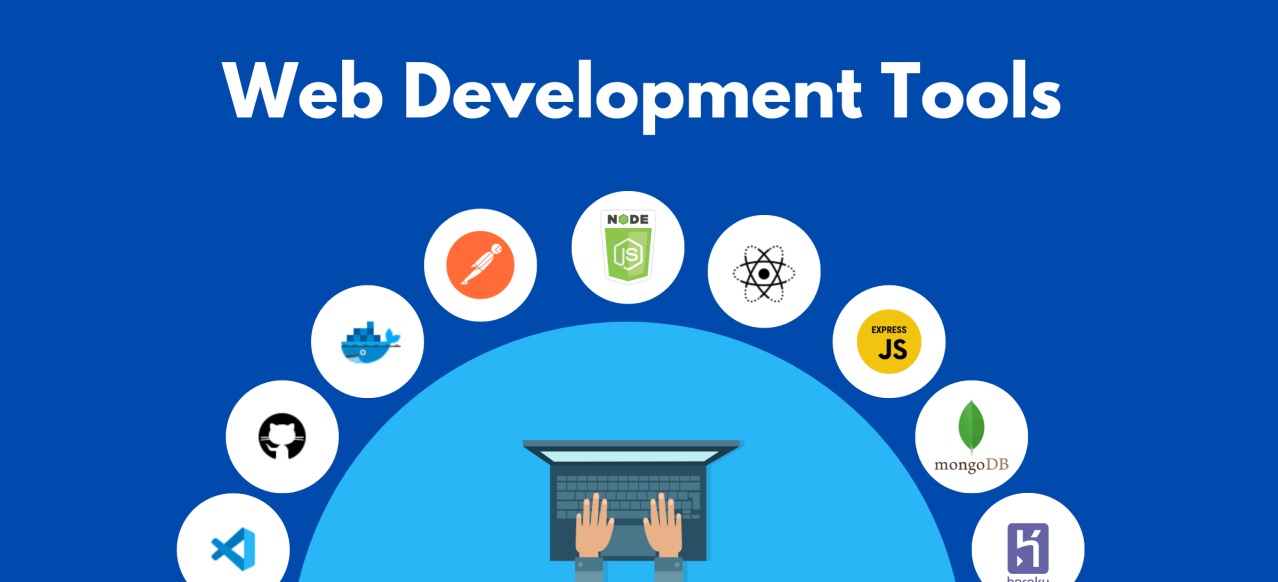In the ever-evolving world of software development, keeping your toolbox sharp is crucial. Whether you're a solo coder, startup tech lead, or open-source contributor, the right tools can supercharge your workflow and productivity.
Thankfully, 2025 brings a host of free and powerful tools that are industry-tested and community-approved. From code editors to API testing platforms and cloud services, here are the top 10 free tools every developer should be using in 2025.
🔧 1. Visual Studio Code (VS Code)
Best For: Code editing, extensions, debugging
Platform: Windows, macOS, Linux
Still the most popular code editor, VS Code continues to evolve with AI-assisted coding, advanced Git integration, and real-time collaboration via Live Share.
Why It Rocks:
Lightning-fast performance
Massive extension marketplace
Built-in terminal and Git support
IntelliCode (AI-powered suggestions)
💡 Pro Tip: Combine VS Code with GitHub Copilot for AI-powered code suggestions.
🧪 2. Postman
Best For: API development and testing
Platform: Desktop + Web
Postman remains a developer favourite for designing, testing, and automating APIs. The free plan now includes collaboration tools for small teams and mock servers for frontend/backend separation.
Key Features:
Send requests with various auth types
API version control
Code generation in multiple languages
Collections for organising workflows
🚀 New in 2025: Native AI support for generating test scripts and responses.
📦 3. GitHub
Best For: Version control, collaboration, open source
Platform: Web + CLI
GitHub has gone beyond being just a version control platform. In 2025, it’s your dev hub for repositories, discussions, CI/CD (Actions), and even secure package hosting.
Highlights:
Free unlimited private repos
GitHub Actions for automation
Dependabot for vulnerability alerts
Copilot (AI assistant for code)
🔐 Use GitHub Codespaces to spin up cloud dev environments instantly—free for personal use.
🧠 4. ChatGPT for Developers (Free Tier)
Best For: Debugging, code generation, documentation
Platform: Web
ChatGPT (especially GPT-4.5 or GPT-4o) has become a powerful coding partner. Even the free tier gives access to reliable code explanations, regular expressions help, SQL queries, and more.
Use Cases:
Generate boilerplate code
Translate logic between languages
Fix bugs or refactor snippets
Write README files and commit messages
🎯 Bonus: Combine it with VS Code extensions for inline usage.
🌐 5. Figma (Free Plan)
Best For: UI/UX design, prototyping, collaboration
Platform: Web + Desktop
Figma isn’t just for designers anymore—developers use it to collaborate on UI/UX design, extract CSS, and test interactive components.
Benefits:
Real-time collaboration
Developer handoff tools
Export CSS/SVG directly
Auto layout + component reuse
🛠️ Dev Mode in Figma (launched 2024) makes it easier for developers to inspect and extract code-ready assets.
🐳 6. Docker
Best For: Containerization, dev environments, deployment
Platform: Desktop + CLI
Docker lets developers package applications into lightweight, portable containers—perfect for testing and deployment consistency.
Key Features:
Docker Compose for multi-container apps
Docker Desktop (free for personal use)
Large Docker Hub image ecosystem
Works seamlessly with Kubernetes
🔄 Docker extensions now allow better integration with cloud services and IDEs.
🔍 7. Insomnia
Best For: REST, GraphQL, and gRPC API debugging
Platform: Cross-platform desktop
Often dubbed as a Postman alternative, Insomnia has gained popularity for its faster performance, intuitive UI, and native support for GraphQL.
Why Use It:
Clean interface with dark mode
Git sync and plugin system
gRPC support out of the box
Ideal for testing REST APIs and GraphQL endpoints
🌩️ 8. Netlify (Free Tier)
Best For: Deploying static sites, JAMstack apps
Platform: Web
Netlify simplifies front-end deployment like no other. Just push to GitHub, and your app is live—with SSL, continuous deployment, and previews.
Key Highlights:
Free custom domains and HTTPS
Forms and serverless functions support
Built-in CI/CD pipeline
Great for React, Vue, and static HTML sites
🚨 Supports edge functions and image optimization in the free tier.
🧪 9. Playwright (Microsoft)
Best For: End-to-end browser testing
Platform: Node.js + CLI
For modern UI automation testing, Playwright is rising fast, offering multi-browser, headless testing and robust API automation features.
What’s Cool:
Cross-browser: Chrome, Firefox, Safari
Native TypeScript/JavaScript support
Record actions for script generation
Parallel test execution
✅ It’s open-source and integrates easily into your GitHub Actions pipeline.
📋 10. Notion (Developer Workspace Use)
Best For: Docs, roadmaps, personal task management
Platform: Web + Apps
Notion has evolved into a favourite productivity tool for developer knowledge bases, roadmaps, bug tracking, and project wikis.
Best Uses for Developers:
Maintain code documentation
Sprint tracking and Kanban boards
Templates for API docs
Integrated with GitHub, Slack, and more
✨ Developers now use Notion AI to generate summaries and brainstorm features.
🧠 Bonus Mentions
Replit (Free Cloud IDE) – Great for quick code prototyping and team projects
Canva (for Dev Portfolios) – Create stunning project presentations and pitch decks
Glitch – Real-time app building in the browser
Ray.so – Share beautiful code screenshots for blogs/social media
Lighthouse (Chrome DevTools) – For performance testing and audits
🔚 Final Thoughts: Supercharge Your Stack
In 2025, the landscape of developer tools is more accessible, powerful, and AI-enhanced than ever before. Whether you're building full-stack apps, APIs, or scalable cloud services, there’s a free tool out there to elevate your workflow.
The best part? You don’t need a giant budget to build powerful software. You just need the right tools.
Start exploring these tools today—and don’t forget to mix and match what fits your tech stack. Because the future of development is lean, fast, and intelligent.












Recent Comments
No comments yet.